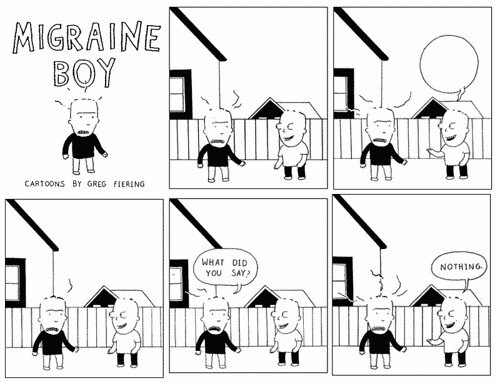Don't persue culture - you'll scare her to death.
Ah, the urbane world of academia. PJ Rhodes has retired as Professor of Ancient History at Durham and been replaced by Edward Harris. Harris came to London yesterday to speak to the Institute of Classical Studies seminar on the promising sounding topic "Who enforced the law in Classical Athens?" So now we all know. So far, so mundane. What elevated this particular paper was the novelty of a speaker announcing, with the style, pomp and gravitas of a Catholic archbishop intoning "This is the Word of the Lord" that unanswerable assertion of supreme authority:
"...that is a QUOTE from Professor Ernst Badian!"
I had not realised that over the pond that man had been elevated to the status of a font of unquestionable knowledge. Here he is better known as a vehement anti-Marxist, as might be expected of a man whose University career began in 50s America. His great early achievement, Foreign Clientelae, is punctuated every few pages by the assertion "...and at this time there was no class antagonism in [locus]..."
All of which made me wonder whether my generation will at last be able to take a step back from the impact Marxism has had on historiography. Will it ever be possible for Marxist analysis to join the ranks of other analytical tools, and become another interesting way of looking at a problem, used by historians without a prior ideological committment? Perhaps, but the generation of historians about to retire will continue to bemoan the fact that we have not been taught Marxism properly at school. This is perhaps indicative of the fact that such a process has already been irreversably set in motion.
Tenuous as the link is, the producers of Big Brother are to be congratulated for incarcarating George Galloway and Jodie Marsh together, if only for the priceless moment when George said to Jodie: "You're a wicked, wicked person." Whereas Mr. Hussein, George...
Finally, a 'Migrane Boy' strip that made me laugh.

"...that is a QUOTE from Professor Ernst Badian!"
I had not realised that over the pond that man had been elevated to the status of a font of unquestionable knowledge. Here he is better known as a vehement anti-Marxist, as might be expected of a man whose University career began in 50s America. His great early achievement, Foreign Clientelae, is punctuated every few pages by the assertion "...and at this time there was no class antagonism in [locus]..."
All of which made me wonder whether my generation will at last be able to take a step back from the impact Marxism has had on historiography. Will it ever be possible for Marxist analysis to join the ranks of other analytical tools, and become another interesting way of looking at a problem, used by historians without a prior ideological committment? Perhaps, but the generation of historians about to retire will continue to bemoan the fact that we have not been taught Marxism properly at school. This is perhaps indicative of the fact that such a process has already been irreversably set in motion.
Tenuous as the link is, the producers of Big Brother are to be congratulated for incarcarating George Galloway and Jodie Marsh together, if only for the priceless moment when George said to Jodie: "You're a wicked, wicked person." Whereas Mr. Hussein, George...
Finally, a 'Migrane Boy' strip that made me laugh.


1 Comments:
At 9:48 AM, UK plc said…
UK plc said…
Interesting question. I think the answer is probably yes, and - strange as it may seem - I think the work of Eric Hobsbawm is very much in the right direction in this respect. Yes, of course, when he gets on his high horse, Hobsbawm is as doctrinaire as the best of them. But if you look at some of his early stuff like "The Age of Revolution," or his history of the industrial revolution, "Industry and Empire" (which I had the pleasure of discovering this week) he is pretty clear about the way he's going about it, happy to use analytical Marxism when it seems useful, but perfectly prepared not to analyse every single thing in Marxist terms (actually I was rather surprised at the conservative tone of parts of "Industry and Empire"...).
I think Hobsbawm's influence on the historians who worked under him at Birkbeck (in the field of German history, Richard J. Evans, David Blackbourn, Geoff Eley, and the magnificent historian of revolutionary Russia Orlando Figes is clearly a product of the same kind of environment) has produced the same effect if you look at the work of any of those writers. Eley wears his Marxism on his sleeve as much as Hobsbawm, maybe more, but I think he does use it as "just another" analytical tool - with the possible exception of his analysis of left/socialist movements, but I think that's just his own weakness.
The best example of what I mean, though, is probably Richard J. Evans' new history of the Third Reich. Evans has become less politically committed to Marxism over the last 30 years, and has produced a good synthesis of the origins of Nazism that can use the word "class" without quickly following it with "inevitable," as preceding historians like Wolfgang Mommsem (magnificent historian that he was) had done.
True, other fields look a little less promising, and many remain sharply divided according to peoples' politics (Soviet history, or the recent history of the Balkans, with a very few exceptions in both fields) but surely the potential is there to be developed.
I hope the next generation will be a bit more ambitious than all this though. In the 70s, modern historians began to ask fundamentally different questions from those their teachers had asked. It would be a great shame if our generation does not achieve something similar.
Post a Comment
<< Home